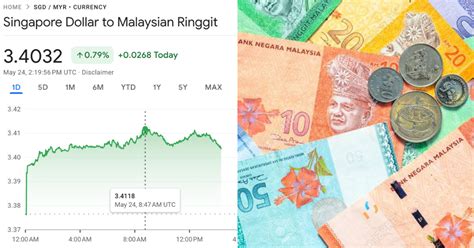Introduction
The ongoing COVID-19 pandemic continues to pose significant challenges to individuals and communities worldwide. With the emergence of new variants and the changing nature of the virus, staying updated on the latest guidelines and protocols is crucial for effective management of the infection. This comprehensive guide provides detailed information on what to do if you test positive for COVID-19 in Singapore in 2023, ensuring you navigate this situation effectively and safely.

Immediate Actions Upon Confirmation of Covid-19 Infection
1. Isolate Yourself:
Upon receiving a positive COVID-19 test result, whether through an antigen rapid test (ART) or a polymerase chain reaction (PCR) test, it is imperative to isolate yourself immediately to prevent further spread of the virus. This means staying at home and avoiding contact with others, including family members and roommates.
2. Inform Close Contacts:
Identify and inform individuals who have been in close contact with you within the past 48 hours. Close contacts are defined as those who have spent at least 15 minutes within 2 meters of an infected person. Provide them with your test results and advise them to monitor for symptoms and get tested if necessary.
3. Report to Telemedicine Platform:
Contact the designated telemedicine platform, such as the National TeleConsultation System (NTCS), to report your positive test result and receive guidance on further actions. You may be required to provide additional information, such as your symptoms and vaccination status.
4. Monitor Your Symptoms:
Pay close attention to your symptoms and seek medical attention promptly if you experience any worsening or difficulty breathing. Symptoms of COVID-19 can range from mild to severe, and it is important to be aware of potential complications.
Management of Symptoms and Treatment Options
1. Home Care for Mild Symptoms:
For individuals with mild symptoms, such as cough, fever, sore throat, and body aches, home care is typically recommended. Rest, stay hydrated, and take over-the-counter medications to relieve symptoms. Avoid unnecessary use of antibiotics, as they are not effective against viruses.
2. Telemedicine Consultation for Moderate Symptoms:
If you experience moderate symptoms, such as persistent cough, shortness of breath, or chest pain, seek a telemedicine consultation. The healthcare professional will assess your symptoms, provide treatment recommendations, and determine if further medical attention is necessary.
3. Hospitalization for Severe Symptoms:
In cases of severe symptoms, such as severe respiratory distress or organ failure, hospitalization may be required. You will receive specialized medical care, including oxygen therapy, antiviral medications, and other supportive treatments as needed.
Recovery and Return to Daily Activities
1. Isolation Period:
As per the latest guidelines from the Ministry of Health (MOH), individuals who test positive for COVID-19 are required to isolate for a period of 5 days from the date of onset of symptoms or from the date of positive test result (whichever is earlier).
2. Antigen Rapid Test Upon Release:
At the end of the isolation period, you are required to take an ART self-test. If the result is negative, you may resume normal activities with the following precautions:
- Wear a mask in public places for the next 5 days.
- Avoid crowded places and close contact with others.
- Monitor for any symptoms and seek medical attention if they worsen.
3. Positive ART Result Post-Isolation:
If the ART self-test result is positive after the 5-day isolation period, you should continue to isolate for an additional 5 days and repeat the ART test at the end of that period.
Vaccination and Booster Doses
1. Importance of Vaccination:
Vaccination remains one of the most effective ways to prevent severe illness and hospitalization from COVID-19. All eligible individuals are strongly encouraged to get vaccinated and stay up-to-date with their booster doses.
2. Efficacy of Booster Doses:
Booster doses have been shown to significantly enhance protection against the virus, particularly against severe disease. The MOH recommends that individuals receive a booster dose 5 months after completing their primary vaccination series.
3. Accessibility of Vaccines:
Vaccines and booster doses are widely available at vaccination centers, clinics, and hospitals throughout Singapore. Check with your healthcare provider or visit the MOH website for more information on vaccine availability and scheduling.
Supporting Services and Resources
1. Telemedicine Platforms:
Telemedicine platforms, such as the NTCS, provide convenient access to healthcare professionals for assessment, guidance, and treatment recommendations. These platforms are particularly useful for individuals with mild to moderate symptoms who prefer to manage their care remotely.
2. Community Care Facilities:
Community care facilities provide temporary accommodation and support for individuals who are unable to isolate at home due to lack of space, household contacts with higher risk of complications, or other reasons. These facilities offer basic medical care, meals, and laundry services.
3. Mental Health Support:
The pandemic can take a toll on mental health. If you are struggling with anxiety, stress, or other emotional challenges related to COVID-19, reach out for support from mental health professionals or support groups.
Conclusion
Navigating a COVID-19 infection can be a challenging experience, but by following the guidelines outlined in this article, you can effectively manage your symptoms, prevent further spread of the virus, and return to daily activities safely. Remember to stay informed about the latest updates and seek professional medical advice when necessary. Together, we can overcome this pandemic and protect our communities.
Tables
Table 1: Symptoms of COVID-19
| Symptom | Common | Uncommon | Severe |
|---|---|---|---|
| Cough | Yes | Yes | Yes |
| Fever | Yes | Yes | Yes |
| Fatigue | Yes | Yes | Yes |
| Loss of Taste or Smell | Yes | Yes | Unlikely |
| Shortness of Breath | Uncommon | Yes | Yes |
| Chest Pain or Pressure | Unlikely | Yes | Yes |
| Confusion | Unlikely | Yes | Yes |
Table 2: Isolation Duration for COVID-19 Cases
| Scenario | Isolation Period |
|---|---|
| Confirmed Case (Mild Symptoms) | 5 days from onset of symptoms or positive test result |
| Confirmed Case (Moderate Symptoms) | As advised by healthcare professional |
| Confirmed Case (Severe Symptoms) | As advised by healthcare professional |
| Close Contact of Confirmed Case | 5 days from last contact |
Table 3: Vaccination and Booster Doses
| Vaccine Type | Primary Series | Booster Dose |
|---|---|---|
| Pfizer-BioNTech | 2 doses | 1 dose (5 months after primary series) |
| Moderna | 2 doses | 1 dose (5 months after primary series) |
| Sinovac | 2 doses | 1 dose (6 months after primary series) |
| Sinopharm | 2 doses | 1 dose (6 months after primary series) |
Table 4: Supporting Services and Resources
| Service | Description | Contact |
|---|---|---|
| National TeleConsultation System (NTCS) | Telemedicine platform for healthcare assessment and guidance | https://ntcs.sg/ |
| Community Care Facilities | Temporary accommodation and support for individuals unable to isolate at home | https://www.moh.gov.sg/covid-19/community-care-facilities |
| National Care Hotline | Emotional support and mental health resources | 1800-202-6868 |












